Search
Search Results
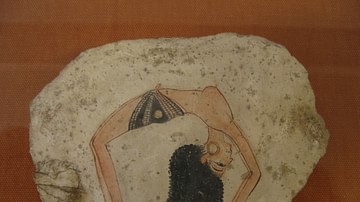
Article
Music & Dance in Ancient Egypt
Music and dance were highly valued in ancient Egyptian culture, but they were more important than is generally thought: they were integral to creation and communion with the gods and, further, were the human response to the gift of life and...
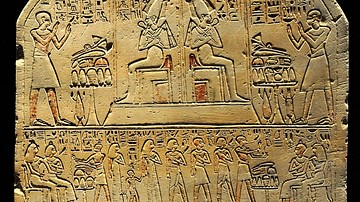
Article
Clergy, Priests & Priestesses in Ancient Egypt
The ancient Egyptians understood that their gods had prevailed over the forces of chaos through the creation of the world and relied upon humanity's help to maintain it. The people of Mesopotamia held this same belief but felt they were co-workers...
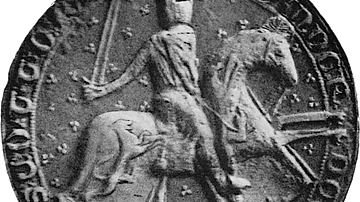
Definition
Alexander III of Scotland
Alexander III of Scotland reigned from 1249 to 1286 CE. Succeeding his father Alexander II of Scotland (r. 1214-1249 CE) at the age of eight, the young king's early reign was blighted by rivalries between his nobles, a situation made more...
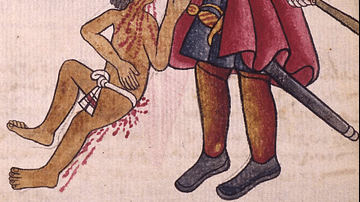
Definition
Encomienda
The encomienda was a system where Spanish adventurers and settlers were granted the legal right to extract forced labour from indigenous tribal chiefs in the Americas colonies of the Spanish Empire. In return, the Europeans were expected...
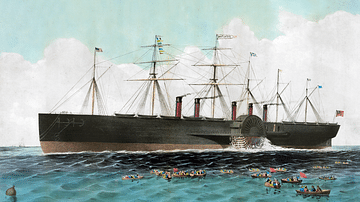
Image
SS Great Eastern
An illustration by Charles Parsons showing the steam-powered SS Great Eastern. It was designed by Isambard Kingdom Brunel (1806-1859) and completed in 1858. It was the largest ship in the world at 211 metres (692 ft) long. Great Eastern could...
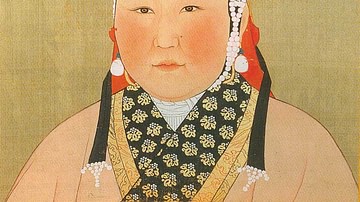
Article
Women in the Mongol Empire
Women in the Mongol Empire (1206-1368 CE) shared the daily chores and hardships of steppe life with men and were largely responsible for tending animals, setting up camps, childrearing, producing food and cooking it. Having rather more rights...
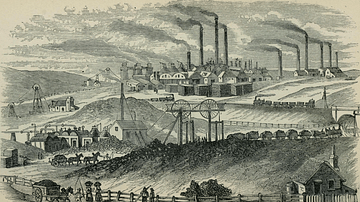
Article
Coal Mining in the British Industrial Revolution
Coal mining boomed during the British Industrial Revolution as it provided fuel for steam engines of all kinds in factories, transport, and agriculture. Draining flooded mines to extract more coal was the reason the steam engine was invented...
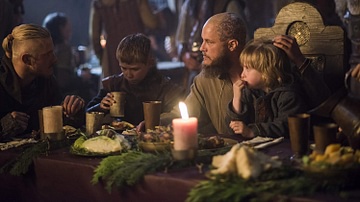
Article
Norse-Viking Diet
In many depictions of Vikings, whether in film or other media, a group is often seen gathered around a flaming pit while an animal of some type – usually a boar – turns on a spit above. While the people of Scandinavia certainly...
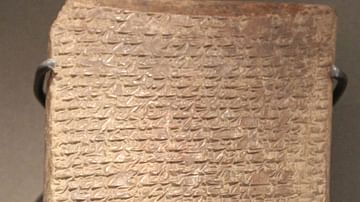
Article
Ludlul-Bel-Nemeqi
The Ludlul-Bel-Nemeqi (c. 1700 BCE) is a Sumerian and later Babylonian poem on the theme of unjust suffering, which is thought to have influenced the biblical Book of Job. Also known as The Poem of the Righteous Sufferer, the title translates...
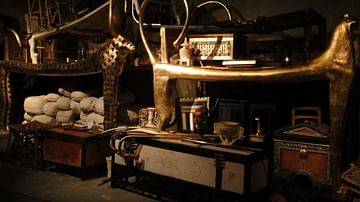
Article
The Discovery of Tutankhamun's Tomb
Before Howard Carter discovered Tutankhamun's tomb, he began his career as a 17-year-old artist on an excavation in Egypt. His skills were soon recognized, and he quickly rose to be an excavator and later chief inspector for Luxor. Because...